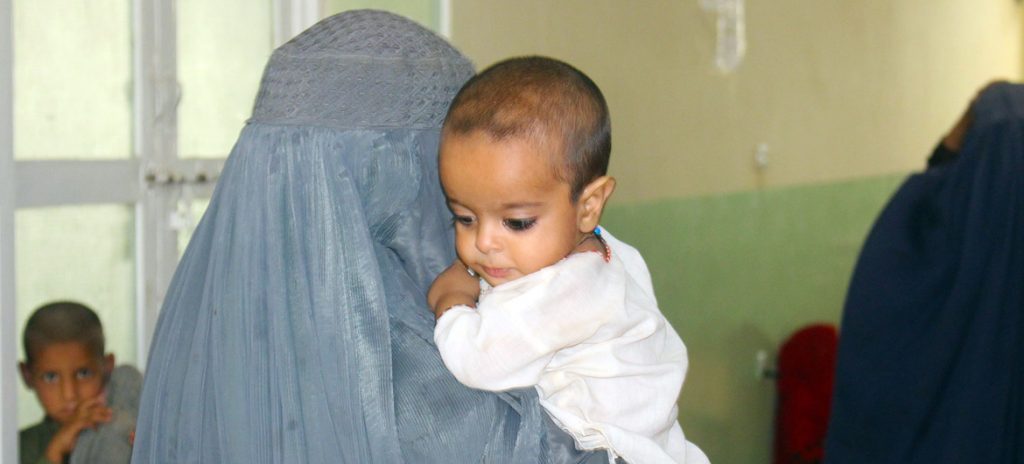Afghanistan: Food supply for millions could run out this month
Photo: UNICEF Food stocks in Afghanistan could run out as soon as this month, a senior UN official warned on Wednesday, urging the international community to step up support for the country. Story first published by UN News on 1 September 2021. Ramiz Alakbarov, Deputy…

Photo: UNICEF
Food stocks in Afghanistan could run out as soon as this month, a senior UN official warned on Wednesday, urging the international community to step up support for the country. Story first published by UN News on 1 September 2021.
Ramiz Alakbarov, Deputy Special Representative and Humanitarian Coordinator in Afghanistan, stressed that while the UN remains “determined to deliver”, more funding is needed to reach millions who depend on aid to survive. He reported that more than half of all under-fives are suffering from extreme malnutrition, and more than one-third of citizens are not getting enough to eat.
“It is extremely important that we prevent Afghanistan from descending into a further humanitarian catastrophe by taking the necessary steps to provide essential items which this country needs right now. And that is to support food, health and protection services, and non-food items, to those who are in extreme need,” said Mr. Alakbarov, speaking from the capital, Kabul.

Photo: WFP
In recent days, the UN has flown medical supplies into the Mazar-i-Sharif airport in northern Afghanistan, while some 600 metric tonnes of food were delivered by trucks coming over the border from Pakistan.
Children most vulnerable
UN teams have also been providing communities with access to water and sanitation, as well as protection services, including to some 800 children at Kabul airport. However, Mr. Alakbarov said the World Food Programme (WFP) could run out of stocks by the end of September. “For us to keep the current demand, we need at least USD 200 million only for the food sector, to be able to provide food to the most vulnerable,” he added. “And those most vulnerable are children.”
The UN is set to issue a flash appeal for Afghanistan in the coming days.
Assuring humanitarian access
While two “major” UN Member States have signalled their financial support, this still will not be enough, he said, stating “we need a really broad participation of the international community in these resource mobilization efforts.” Even before the current upheaval, some 18 million people, or half the population, depended on emergency aid to meet their basic needs. A USD 1.3 billion funding request from earlier in the year has so far netted less than USD 400 million.
Meanwhile, humanitarian partners are able to access most of the country, and are working in 394 out of the 403 districts.
Gender equality a ‘test’
Mr. Alakbarov said although the Taliban have provided “every assurances”, humanitarian access varies from province to province due to several issues, including the degree to which women are being allowed to keep working.
In some places, Taliban provincial authorities have allowed women humanitarians to return to their jobs in health and education, or to take part in needs assessments. In others “we have not received that possibility”, he said.
“We continue to advocate very strongly with the Taliban, first of all for respect to the principles of gender equality and participation so that women can return to work and provide the required assistance. And that we be provided with any necessary facilitation to do this work.”
Mr. Alakbarov underscored that staff safety is a top priority, particularly for women personnel, most of whom are Afghan nationals.
“The issue of gender equality and women is a big test also, for the Taliban, and for the way the international community will be reacting and interacting,” he said. “And obviously, it is in the centre of attention of the United Nations.”